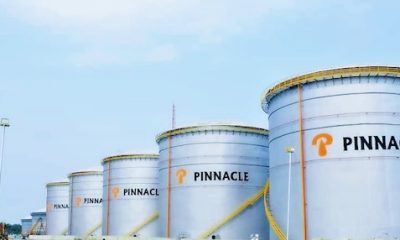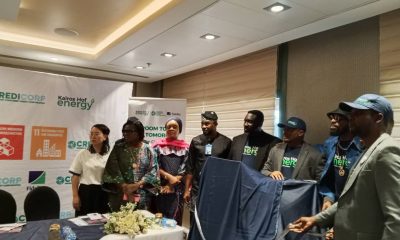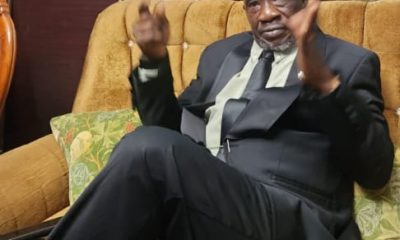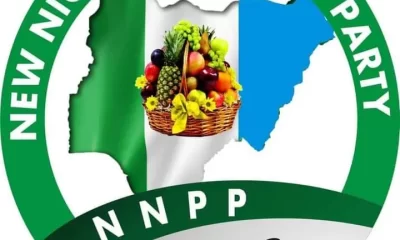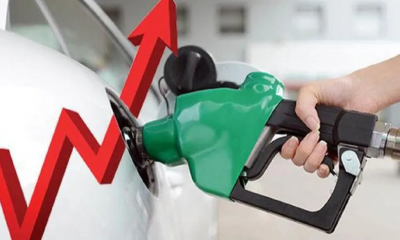Oil & Gas
IPMAN Rejects Scrapping of Petroleum Equalisation Fund
The Independent Petroleum Marketers Association of Nigeria (IPMAN) has rejected the proposed scrapping of the Petroleum Equalisation Fund (PEF), asserting that it fosters national unity.IPMAN’s President, Mr Chinedu Okoronkwo, told the News Agency of Nigeria (NAN) on Tuesday in Lagos that PEF was very relevant as the country was progressing towards the full deregulation of the petroleum downstream sector.
NAN reports that PEF was set up by Decree 9 of 1975 (as amended by Decree Number 32 of 1989 now chapter 352 of the Laws of the Federation). Its main function is to ensure price uniformity of petroleum products via the reimbursement of marketers for losses they incur in trucking products from depots to their filling stations anywhere in Nigeria.Okoronkwo faulted the recommendations from some stakeholders that the PEF should be scrapped in the draft of the Petroleum Industry Bill currently before the National Assembly.He noted that this was uncalled for as the funds employed in making the PEF work effectively were sourced from the revenue pool, generated by the Product Marketing Companies.Okoronkwo said: “PEF are fund managers and they manage our money. Government is not giving them money in any way and what they are working with is marketers’ money.“In order to unite the country, there must be semblance of uniformity in prices of petroleum products all over.“For instance, the price you buy a particular soft drink is the same all over the country and that is internal equalisation by the companies.”So, we believe PEF is very relevant and they should continue to do this for us. We are not saying that there should not be a difference in prices but it should be minimal. “He also urged the government to create a level playing field in the downstream sector by providing foreign exchange for marketers to import fuel at the same rate given to the Nigerian National Petroleum Corporation.Okoronkwo said: “We are saying that marketers should be allowed to go out and bring in petrol instead of only NNPC importing the product.“This will encourage competition and drive the price down. There are many areas that cost can go down when we are allowed to import.“Some marketers already have their own vessels which may reduce the freight cost. What we want is for government to allow the full deregulation of the sector and allow market forces to determine the price.” (NAN)Oil & Gas
Lawyers Integral to Optimal Regulatory Compliance in Oil Business – NMDPRA
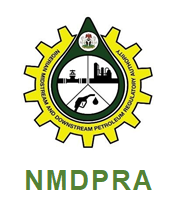
The Midstream and Downstream Petroleum Regulatory Authority (NMDPRA) said the role of legal practitioners is critical across the midstream and downstream energy business value chain in the promotion of optimal regulatory compliance.
Chief Executive, NMDPRA, Farouk Ahmed said this on Monday in Abuja at its 2025 General Counsel and Legal Advisers Forum for Midstream and Downstream Petroleum Companies in Nigeria.
The forum has its theme as ‘Advancing a Collaborative Compliance Culture in Nigeria’s Midstream and Downstream Petroleum Sectors’.
Ahmed was represented by Ogbugo Ukoha, Executive Director, Distribution System, Storage and Retailing Infrastructure, NMDPRA.
He said that the sector’s complexity required a unified compliance culture, rooted in robust and enabling legal frameworks, transparency, accountability and shared responsibility.
“The scope of operations of the sector covers hydrocarbon processing, wholesale marketing, transportation, storage, distribution and retail, and its complexity requires more than technical efficiency.
“The role of legal practitioners is critical across the midstream and downstream energy business value chain.
“They help to promote optimal regulatory compliance to set rules and standards of operations in our complex operational and volatile market environment,’’ he said.
Ahmed said that strategic and pragmatic solutions would be established from the forum to enhance performance of the sector towards creation of shared value for investors and the extensive market of Nigeria and the region.
He said that the Petroleum Industry Act (PIA 2021) had fundamentally restructured Nigeria’s petroleum industry by delineating regulatory responsibilities of the industry into the Upstream, midstream and downstream Petroleum operations.
According to him, the Act prescribed that all operations in the midstream and downstream sectors could only be conducted under appropriate licenses, permits and authorisations granted by the NMDPRA.
He said the PIA also mandated NMPDRA to make regulations concerning midstream and downstream petroleum operations in consultation with its licensees and stakeholders.
“As a result of the feedback received from our stakeholders on the need to strengthen regulatory compliance through simplified regulations, NMDPRA is implementing an inclusive stakeholder process of streamlining the gazetted and published regulations.
“This process will mitigate the complexities of navigating and implementing numerous regulations; eliminate inconsistencies and repetitions across multiple regulations; streamline regulatory processes for ease of business; and encourage investments in the industry.
“Kindly use this forum to critically review and make recommendations on the above.
This will enable us to improve the overall compliance of operators and the performance of the regulatory instruments (Legal frameworks and licenses) in the midstream and downstream sectors,” He said.
He said that NMDPRA would continue its commitment to effective stakeholder collaborations that would foster ease of doing business, investor confidence and sustainable operations.
Deputy Speaker, House of Representatives, Benjamin Kalu said that the PIA as a testament to the foresight and dedication of the National Assembly, had fundamentally reshaped Nigeria’s petroleum sector.
Kalu was represented by Ugochinyere Ikenga, Chairman, House Committee on Petroleum Resources, Downstream.
He said that the act had proven how strategic legislation could serve as a potent catalyst for compliance, investment attraction, and robust sector growth.
“For the PIA to remain truly effective, adapting to a dynamic global energy landscape and addressing unforeseen challenges, there must be an institutionalised robust mechanism for its continuous refinement.
“This is precisely where the invaluable insights of our nation’s petroleum experts and our general counsels, the legal architects and navigators of this complex framework, become indispensable.
“For or further synchronisation and effective post-legislative scrutiny, we must actively solicit and integrate your concerns.
“We envision a future where the National Assembly’s specialised committees regularly invite you professionals to public hearings and dedicated technical working groups,” he said.
Kalu said that this proactive engagement would transform abstract legal principles into tangible operational realities, furnishing us with the real-world data and case studies needed to truly understand the PIA’s strengths and weaknesses.
“Your feedback will illuminate where the PIA might be technically challenging, where legal interpretations create bottlenecks, or where new global trends necessitate legislative evolution,’’ he said.
Oil & Gas
OPEC Launches Campaign for Sustained Global Upstream Investment
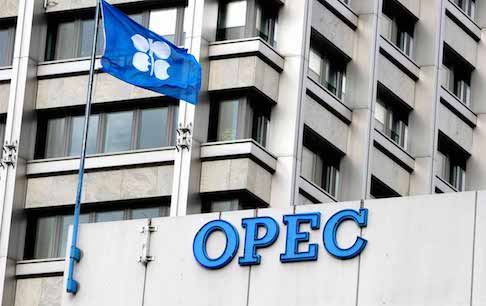
Torough David, Abuja
The Organization of the Petroleum Exporting Countries (OPEC) has launched a global investment drive seeking attention to creating value in the upstream oil and gas industry.
The Organization is calling for urgent and sustained investment in the global upstream oil sector, warning that a cumulative $14.
9tn will be required between 2025 and 2050 to meet projected demand and prevent a future energy crisis.This investment figure, equivalent to $574bn annually, represents the bulk of the $18.2 trillion in total oil-related investments needed over the 25-year period.
The OPEC had projected that $18.2tn investment would be required to meet global oil demand between 2025 and 2050, as it dismissed the notion of a looming peak in fossil fuel consumption as a “fantasy.
”According to the 2025 World Oil Outlook of OPEC, oil demand is projected to rise from 103.7 million barrels per day in 2024 to 116.5 mb/d by 2045 and peaking at around 123 mb/d by 2050, an 18.6 per cent increase over 26 years.
It also noted the need for continued investments in various segments of the sector to meet this demand.
It noted that of the total investment requirement, upstream operations, including exploration and production, are expected to gulp the lion’s share at $14.9tn, or $574bn per year, as producers scramble to ramp up supply. Midstream and downstream investments will require $1.3tn and $2tn, respectively.
“Cumulative oil-related investment requirements to meet projected demand are assessed at $18.2tn over the period between 2025 and 2050.
“This is marginally higher than projected in the WOO 2024, as despite the outlook period being one year shorter, this Outlook has also seen long-term oil demand revised upwards, and liquids supply has followed.
“Total upstream investment requirements make up the bulk of the needed capital expenditure, now projected at $14.9tn, or $574bn per annum. Downstream and midstream investment requirements are projected at $2tn and $1.3tn, respectively,” the report said.
OPEC Secretary-General, Haitham Al Ghais, said continued investments are essential to guarantee future energy security and affordability, especially in the Global South.
“There is no peak oil demand on the horizon,” Al Ghais declared in the report’s foreword. “Efforts to rapidly phase out fossil fuels are unrealistic and disregard energy security, affordability, and socio-economic realities of billions still lacking basic energy access,” he said.
Oil & Gas
FG Declares End to Dormant Fields on Oil Production

By David Torough, Abuja
In a renewed push to meet its OPEC production quota and 2025 budgetary targets, the Federal Government yesterday declared an end to the era where oil companies acquire field licenses and leave them dormant.
The government warned that it would no longer tolerate operators lacking the technical and financial capacity to develop oil fields, stressing that such licenses would be withdrawn.
Minister of State for Petroleum Resources (Oil), Senator Heineken Lokpobiri issued the warning at the ongoing 2025 Nigeria Oil and Gas Energy Week in Abuja.
Lokpobiri said the government was determined to maximize oil production by ensuring that only serious investors retain access to Nigeria’s hydrocarbon resources.
The conference had the theme: “Accelerating Energy Progress Through Investment, Global Partnerships and Innovation”.
Lokobiri stated that, “In our ongoing drive to boost national oil production, the Federal Government remains resolute in ensuring that maximum value is derived from upstream assets currently held by operators.
“This objective has taken on greater urgency as global financing for oil and gas projects continues to tighten, making it increasingly difficult for all operators to secure the capital needed to develop these assets.
“It is no longer acceptable for critical national resources to remain in the hands of companies that lack the technical or financial capacity to optimize them or worse, those who use such licenses merely as a lever to access scarce capital, only to divert it to unrelated ventures.
“Our oil and gas industry has witnessed far too many cautionary tales of this nature, and we must now draw a clear line”.
He said the government has engaged an international consultant to evaluate the 273 fees and rates faced by oil companies in the country to align them with international best practices.
Also, the Minister of State Petroleum Resources (Gas), Ekperikpe Ekpo said Nigeria had proven gas reserves of over 200 trillion cubic feet, yet value would only be created when resources were developed and utilised.
Ekpo said that through the Decade of Gas initiative, the country was focused on translating its vast gas wealth into tangible socio-economic benefits.
This, he said, included driving industrialisation, expanding power generation, increasing domestic Liquefied Petroleum Gas (LPG) usage, deepening gas-to-transport adoption, and growing gas export capacity.
Group Chief Executive Officer of NNPC Ltd, Engr. Bashir Bayo Ojulari disclosed that the Ajaokuta-Kaduna-Kano (AKK) Gas Pipeline has successfully crossed the River Niger, boosting the hope of the project’s completion by Q4 2025.
Ojulari, who described the development as a significant milestone, said the feat was achieved through effective and innovative contract reengineering and industry collaboration.
He also disclosed that for the first time in a long while, the nation enjoyed 100% crude oil pipelines availability throughout June 2025.
He said the feat which was possible through the industry-wide security interventions led by the NNPC helped to boost crude oil production.
He however called for more investments to boost production, adding that NNPC Ltd has been able to turn the narrative around by consistently meeting its cash-call obligations to Joint Venture operations.
He said the Petroleum Industry Act (PIA) has placed NNPC Ltd in a good position to live up to its responsibility of leading the industry in financing projects.



